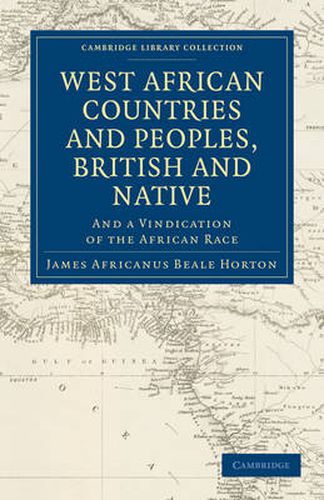Readings Newsletter
Become a Readings Member to make your shopping experience even easier.
Sign in or sign up for free!
You’re not far away from qualifying for FREE standard shipping within Australia
You’ve qualified for FREE standard shipping within Australia
The cart is loading…






This book, first published in 1868, became the best-known work of medical officer and writer James Africanus Beale Horton (1835-1883), who was born in Sierra Leone to parents of Igbo descent. He was chosen by the British to train as an army medical officer and attended King’s College, London, and Edinburgh University. He returned to West Africa and published his doctoral thesis, which was a medical topography of the region; subsequent works called for health reforms. West African Countries, however, went beyond medicine. In it Horton refutes the derogatory racial theories about Africans rife in Victorian Britain and its empire, and he examines the possibility of self-government and how it might function in Sierra Leone and other territories in West Africa, foreshadowing the decolonisation that took place almost one hundred years later.
$9.00 standard shipping within Australia
FREE standard shipping within Australia for orders over $100.00
Express & International shipping calculated at checkout
This book, first published in 1868, became the best-known work of medical officer and writer James Africanus Beale Horton (1835-1883), who was born in Sierra Leone to parents of Igbo descent. He was chosen by the British to train as an army medical officer and attended King’s College, London, and Edinburgh University. He returned to West Africa and published his doctoral thesis, which was a medical topography of the region; subsequent works called for health reforms. West African Countries, however, went beyond medicine. In it Horton refutes the derogatory racial theories about Africans rife in Victorian Britain and its empire, and he examines the possibility of self-government and how it might function in Sierra Leone and other territories in West Africa, foreshadowing the decolonisation that took place almost one hundred years later.